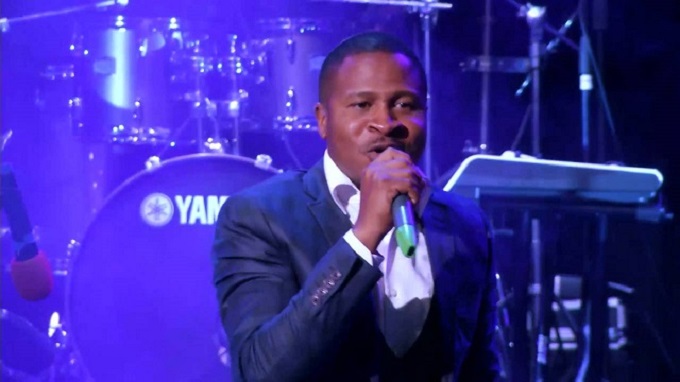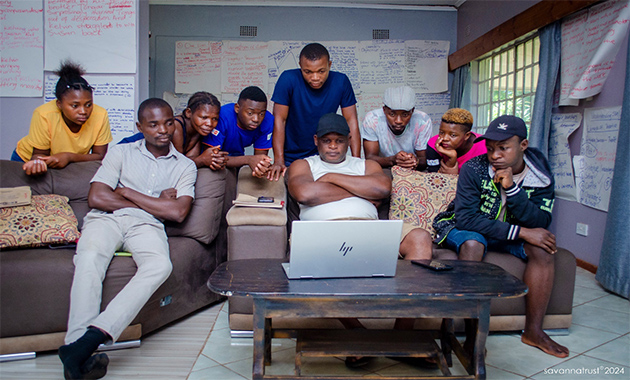There’s overdose of dancehall
Zimbabwe once again attractive for doing business as anyone can trade throughout the world with the US dollar without hassles.
The universal regard for money is the one hopeful fact in modern civilisation and artistes, just like diamond traders, will travel anywhere to get it. As George Bernard Shaw put it many years ago, “Lack of money is the root of all evil”, because all evils, be it robbery, adultery, theft, prostitution, fraud, bribery and other bad practices are motivated by the need to make money. On the other hand, money is the most important thing in the world. It represents health, strength, power, honour, generosity and beauty. If one has money, he or she can solve many problems.
It seems Zimbabwe’s music promoters continue to focus on dancehall artistes from Jamaica because they are cheap, with the hope of attracting large audiences who will in turn spin such projects into money-making ventures. The business begins with choosing popular acts which the promoter feels will draw large crowds of people.
Foreign artistes who have cashed in on performances in Zimbabwe from the beginning of 2010 include Sizzla Kalonji, Yassus Afari, Sean Paul, Brick and Lace, Beenie Man, King Sounds, Capleton and Akon.
I am not sure who is advising C&A Entertainment but they seem to believe that bringing in another dancehall artiste will draw large crowds. In 10 days’ time, Jamaican reggae dancehall artist Elephant Man a.k.a. “The Energy God” comes to Zimbabwe for his inaugural show slated for June 24. The question to ask is, “Is Elephant Man popular in Zimbabwe?”
C & A Entertainment, the promoters who recently brought Sean Kingston into Zimbabwe, hope that Elephant Man’s Zimbabwean tour will receive a tremendous response from concert goers. They have even pegged the entry fee at US$5, with the hope that this low fee will attract large crowds.
Dancehall music is fast and exciting. Dancehall music is a genre of Jamaican popular music – a more sparse version of Reggae. It is characterised by faster rhythms which are mainly due to digital instrumentation from computers. It is not clear yet whether Elephant Man will use a live band or CDs to back him up.
Artistes associated with dancehall music include Sizzla , Bounty Killer, Buju Banton, Beenie Man, Elephant Man and Capleton. Quite a number of dancehall artistes have been known to be associated with violence and anti-homosexual (battyman) lyrics. They have been criticised by many international organisations for preaching hatred.
The anti-homosexual stance taken by some of them is the real reason why Buju Banton is serving a prison sentence in one of the American penitentiaries after being framed for selling drugs. It is said that the American homosexuality community was so outraged by his 1992 song “Boom Bye Bye” in which he advocated for the shooting of homosexuals and they decided to set a drugs trap for him.
Elephant Man is no exception to this criticism. He has been lambasted for his lyrics calling for violence against gay people. In 2003 British LBGT group known as OUTRAGE called for the arrest and prosecution of several dancehall stars including Elephant Man, Bounty Killer and Beenie Man for violation of hate crime statutes.
In 2004, Elephant Man was dropped from the MOBO (Music Of Black Origin) awards. Since then, pressure from his record company and agreement with gay rights groups to avoid songs with lyrics deemed to incite homophobic violence have allowed him to perform in the UK.
In 2009, his scheduled appearance at Toronto’s Caribana Festival in Canada was cancelled for similar reasons.
But who is Elephant Man?
Elephant Man was born O’Neil Bryan on the 11th September, 1975 in Kingston, Jamaica.
Bryan’s stage name, Elephant Man, stemmed from his large ears, which led to the nickname Dumbo in his youth. He started out his musical career as a member of the Scare Dem Crew, later continuing as a DJ and solo artiste. He was later characterised for several trademarks, such as his dyed yellow-orange hair, his unique low-key voice, and his stage performance, which included jumping and running, or even climbing on stage props and monitors. His acoustic trademark is marked by a light lisp.
Bryan had his first international recognition when he and Puma, a fashion trade company, settled a contract for using his single “All Out” for its Olympics commercial campaign in 2004.
He also had a song called “Willie Bounce” that appeared on several compilation albums in early 2006. It sampled the first few bars from “I Will Survive” by Gloria Gaynor. Recently, he has done several collaborative works with big names such as Wyclef Jean, Diddy and Busta Rhymes.
The Gully Creeper dance, for which Bryan created a song, was danced to by famous Jamaican sprinter, Usain Bolt at the 2008 Summer Olympics in Beijing after winning the gold medal and breaking a world record in the 200 meter sprint.
In my opinion, C&A Entertainment were ill-advised on which artiste to bring into the country. Someone must have told them how popular Elephant Man was in Zimbabwe and they probably bought the idea without a feasibility study.
My survey among a random sample of 100 people on the streets of Harare has revealed that Elephant Man does not have that all-round attraction to a wider audience. A nursery school teacher called Shereen Daniels aged 22 and lives in Chadcombe, when asked if she will attend the show responded: “Wheeler man selector!, Rewind! I am into dancehall and I can’t miss this show”. Twenty-six-year-old Owen from Arcadia thought that going to the show was a waste of time. C.J., another reveller from Hillside decided he is not going to bother. As he put it: “Why do I need to punish myself with the cold at such a venue when I could be warm in my my blankets?” Farai from Eastlea, a Rastaman, remarked: “I and I is a true Rastaman and dis ya show give me nuff opportunity to mix and mingle wit dem rasta bredren and fe catch a spliff. I an I definitely going!”
However, US$5 might seem a reasonable entrance fee to the concert and that seems to be targeted at the poor ghetto people, but is the interest there? In Mbare, out of the 40 people interviewed, I met only a handful who were positive they would attend the show. The rest were indifferent. A few of them said they did not know who Elephant Man was but were going only because Winky D will also be performing. Before the publicity, very few people knew who Elephant Man was and what songs he sang. They all know Winky D though.
Indeed, over the years sales of dancehall reggae have been lagging in areas considered to be reggae-friendly like the US, Japan, Europe South Africa and Britain and this genre has found new devotees in dancehall-mad Zimbabwe as evidenced by the recent concerts of Sizzla, Sean Paul, Beenie Man and Capleton.
International promoters of reggae, who have experienced a drop in appreciation for this type of music from such strong traditional areas of reggae music are now looking to Zimbabwe as the music’s brightest outpost. Sean Paul is quoted as saying “Zimbabwe is a great concert country”. In the Netherlands dancehall has priced itself out of the market.
Inclusion of Winky D on the Elephant Man bill was a wise move by the promoters as hundreds of ghetto youths for whom the concert is targeted will find reason to attend the concert. At his recent Hifa performance, Winky D on his own attracted over 3 000 dancehall fans who were each paying US$12 entrance fee.
Winky D who has previously shared the stage with Jamaican Dancehall artists such as Sizzla and Beenie Man, has proved that he is Zimbabwe’s new icon of dancehall through his inimitable delivery style, lyrical skill and professional showmanship.
For all I know he might even outperform Elephant Man on the night. Who knows? Like Mr Jonathan who recently won the Nigerian elections, C&A might meet with Good Luck.
My advice to music promoters with lots of cash to gamble with is: If Oliver Mtukudzi and Winky D can attract over 3 000 fans on their own, why spend all that money flying foreign artistes who will probably attract smaller crowds?
l Fred Zindi is a professor at the University of Zimbabwe. He is also a musician and an author of several books on music. He can be contacted via e-mail on [email protected]








Comments